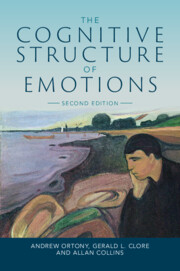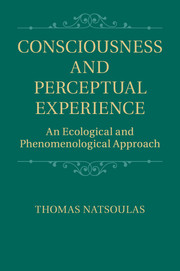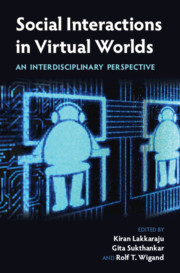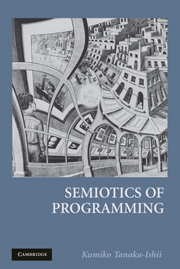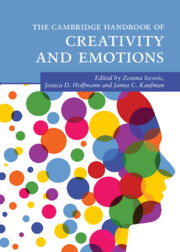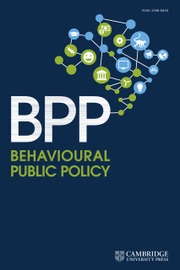The Cognitive Structure of Emotions
2nd Edition
- Authors:
- Andrew Ortony, Northwestern University, Illinois
- Gerald L. Clore, University of Virginia
- Allan Collins, Northwestern University, Illinois
- Date Published: August 2022
- availability: Not yet published - available from October 2024
- format: Paperback
- isbn: 9781108928755
Paperback
Other available formats:
Hardback, eBook
Looking for an inspection copy?
This title is not currently available on inspection.
-
More than 30 years after its initial publication, this new edition of The Cognitive Structure of Emotions refines and updates Ortony, Clore, and Collins's OCC model of emotions. Starting from a three-way classification of construals of the world––events, the attribution of responsibility for events, and objects––the authors propose a systematic account of emotion differentiation. Rejecting the oft-favored features of bodily feelings, emotion-related behaviors, and facial expressions as too intensity-dependent and insufficiently diagnostic, they provide a detailed analysis of emotion differentiation in terms of the cognitive underpinnings of emotion types. Using numerous examples, they explain how different variables influence emotion intensity, and show how emotions can be formalized for computational purposes. Now with a contributed chapter describing the OCC model's influence, this book will interest a wide audience in cognitive, clinical, and social psychology, as well as in artificial intelligence and affective computing, and other cognitive science disciplines.
Read more- Offers a highly applicable account of specific emotions in terms of people's cognitive interpretations
- Expanded and updated throughout
- Includes new chapter on the book's legacy over the past 30 years
Reviews & endorsements
'For decades, the original 'OCC model' has inspired and provided 'meat for thought' to many computer scientists struggling to choose among, reconcile and operationalize different emotion theories. I warmly welcome this 'evolved OCC framework', echoing and integrating key recent advances and shifts of perspective from different disciplines. It will surely continue to inspire generations of 'computational emotion modelers'.' Lola Cañamero, Professor and INEX Chair of Neuroscience and Robotics, CY Cergy Paris University, France
See more reviews'In this new edition of The Cognitive Structure of Emotions, Ortony, Clore and Collins (OCC) offer the best-articulated and most deeply analytical cognitive account of the emotions. In steering clear of the usual detours to physiology and neurolocalization, they forthrightly center emotion in the experience of the emoter. The welcome postscript by Gratch and Marsella shows how readily the structural features of OCC's account lend themselves to the computational modeling of emotion. The writing is clear, the arguments are cogent, and the book stands as an indispensable resource for anyone doing affective science.' Alan J. Fridlund, Associate Professor, University of California at Santa Barbara, USA
'The first edition of The Cognitive Structure of Emotions was a major breakthrough. This new edition has integrated major advances in emotion theory and affective computing. There is no doubt it will continue to serve as strong basis of theoretical works and of computational models of emotion.' Catherine Pelachaud, Director of Research, CNRS-ISIR, Sorbonne University, France
'Since its first appearance in 1988, The Cognitive Structure of Emotions by Ortony, Clore and Collins has become a classic of emotion psychology. At the time, the model of emotions proposed by the authors was the most encompassing and systematic appraisal theory of emotion psychology. Nearly 35 years later, the updated version of the 'OCC model' of emotions described in the second edition reasserts the theory's claim to this position. The book is rounded off by an instructive chapter written by Gratch and Marsella on the impact the OCC theory has had on the computational modeling of emotions. Like OCC1, OCC2 is required reading for students of emotion from all disciplines.' Rainer Reisenzein, Institute of Psychology, University of Greifswald, Germany
'A brilliant revision to a brilliant book. A must read for anyone interested in the cognitive underpinnings of emotion – which should be everyone.' Timothy D. Wilson, Sherrell J. Aston Professor of Psychology, University of Virginia, USA
'This book is a further leap forward away from essentialist theories of emotions, which tend to be detached from thinking and experience, towards a more humanistic approach. To read of emotions based on thoughts such as 'It is so good that it happened' is like a breath of fresh air.' Anna Wierzbicka, author of Emotions across Languages and Cultures, Australia
Customer reviews
Not yet reviewed
Be the first to review
Review was not posted due to profanity
×Product details
- Edition: 2nd Edition
- Date Published: August 2022
- format: Paperback
- isbn: 9781108928755
- length: 240 pages
- dimensions: 228 x 153 x 17 mm
- weight: 0.46kg
- availability: Not yet published - available from October 2024
Table of Contents
Preface to second edition
Preface to first edition
1. Introduction
2. Overview of the theory
3. Appraisal, the value system, and primary sources of intensity
4. Factors affecting the intensity of emotions
5. Reactions to events: I
6. Reactions to events: II
7. Reactions to the actions of agents
8. Reactions to objects
9. Formalization of the theory and additional issues
10. There and back again: OCC and affective computing
Appendix.
Sorry, this resource is locked
Please register or sign in to request access. If you are having problems accessing these resources please email [email protected]
Register Sign in» Proceed
You are now leaving the Cambridge University Press website. Your eBook purchase and download will be completed by our partner www.ebooks.com. Please see the permission section of the www.ebooks.com catalogue page for details of the print & copy limits on our eBooks.
Continue ×Are you sure you want to delete your account?
This cannot be undone.
Thank you for your feedback which will help us improve our service.
If you requested a response, we will make sure to get back to you shortly.
×
